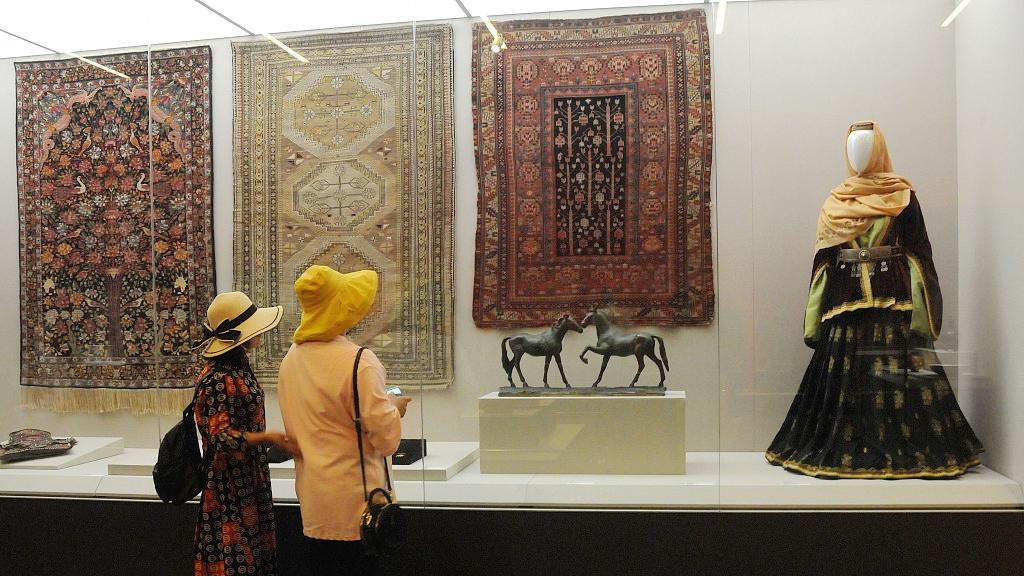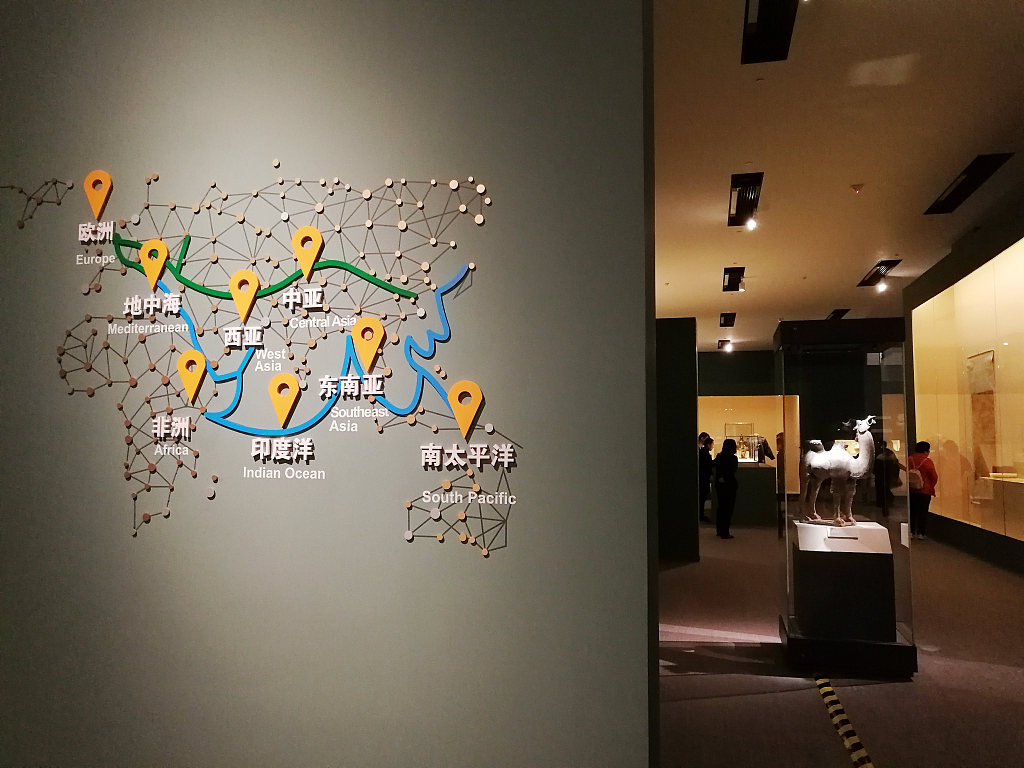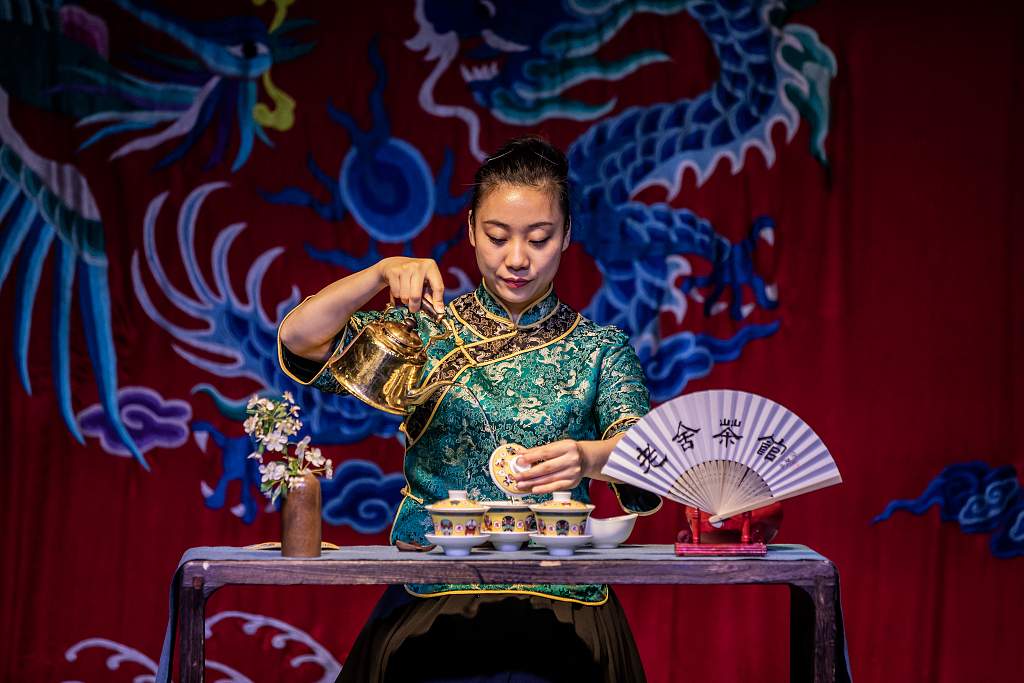
Opinion
20:23, 15-May-2019
The various representations of Asian values in the world
Pierre Picquart

Editor's note: Dr. Pierre Picquart, who has a doctorate degree in geopolitics and human geography of the University of Paris-VIII, is an International expert and specialist of China, and writer and president of the CEDRIC (Center for Studies, Development and International Research on China). This article is an excerpt from his speech at the Forum on Global Influence of Asian Civilizations on May 15. The article reflects the author's opinion and not necessarily the views of CGTN.
In this beautiful spring season, I have the pleasure of being with you in Beijing, and returning to China, a beautiful country that I love, and where I have traveled around 50 times for 20 years. Today, I clearly remember that my first trips to China gave me the irresistible desire, not only to better understand the multiple values of Chinese culture, but also to discover the many aspects of Asian countries and values. I wanted to travel more in Asia and China, to better understand and enjoy these different and attractive Asian values.
I wanted to discover the characteristics, the similarities and the differences between the Asian values. Everything seemed so different, apart from the basic and vital needs that characterize all the peoples of the planet. Beyond human necessities, I understood that the individual and collective thought, the culture, the family and social organization, and the philosophy of our societal groups were very different between Asia, the world and Europe.
Even though Asia and Europe have had contacts before the first millennium, for example with the ancient Silk Road, centuries of different histories have forged different values. Asian values and the spirit of the Silk Road have become a great legacy of human civilization. The knowledge of our mutual values has not been easy, because of the distance of our countries. But step by step, we started to get to know each other better and understand each other better.

“Sharing a common future: Exhibition of Treasures from National Museums along the Road” in Beijing, China, April 11, 2019. /VCG Photo
“Sharing a common future: Exhibition of Treasures from National Museums along the Road” in Beijing, China, April 11, 2019. /VCG Photo
The values, discoveries, inventions, and contributions of Asia are numerous, and we cannot mention them all. The ways of life and ways of thinking of Asia concern various themes of everyday life. All these characteristics show differences with Europe and Western countries, but also common points between Asia and Europe. A multitude of inventions come from Asia and China, such as the compass, silk, paper money, etc., and so many discoveries that Europe has copied.
We must also mention Confucianism, Buddhism, Taoism, Asian languages, medicine, martial arts, yoga, shiatsu and so on. There were also great discoveries from Asia.
In France when I was young, there was little talk of Asia or China, and Asian values. Today it is different. Little by little, we saw practices and philosophies from Asia, and a cultural miscegenation. In the United States, Germany or the United Kingdom, since the beginning of the 1980s, oriental wisdom has found strong resonance. But in recent years, France is catching up, and France is passionately opening up to practices, languages, sports, and philosophies from Asia, be it cooking, medicine or the art of living.
A few years ago, talking about Confucianism or Taoism on the front page of a report or on the cover of a media would have been an aberration. Today it is normal.
Since the craze for Orientalism in the early twentieth century, France had never known such an attraction for philosophies and lifestyles from Asia. This curiosity affects also the decoration of our flats and houses. The Asian fashion for cinema, music, literature, and fashion relates all Western countries. Beyond the arts and Asian philosophies, Asia has become fashionable, and seduced artists, writers, businessmen, and even French consumers.
Asian values have a commercial and financial impact in Europe and France. This passion for Asia has become a contribution to tourism in Asia, and for a thriving commercial market. "L'Oréal" has named a line of products named "Zen." "Carrefour", "Societe Generale" and several major pharmaceutical companies are now promoting Asian products. Even the Paris transport system encourages the Asian mode, to give users time to take a break, stop running and to take care. These Parisian travelers left with a "Little Guide to Serenity." The hotels welcome travelers, with Asian concepts, to be calmer, to be more serene and relaxed. Supermarkets offer many Asian products: green tea, cooking utensils for rice, ginseng, Asian dishes.

A Chinese performer demonstrates process of tea making in Beijing, April 23, 2019. /VCG Photo
A Chinese performer demonstrates process of tea making in Beijing, April 23, 2019. /VCG Photo
In France, in the evening, after your acupuncture session, to relax, you will dine at an Asian restaurant, where a carpet of rose petals leads you to the dance floor. Asian philosophy, unlike the West, refrains from dissociating body and soul and adds breathing, the individual and the collective. Asian wisdom is part of a way of life. The European or French, try to make the synthesis between the two continents, to find a new personal balance. This Asian harmony is sought after in all things, as in sport, lifestyle, and way of thinking.
This encounter with Asia often involves individual exchanges, travel, analysis, and thought about mind and body. We start with food, or yoga, then we move on to health or even spirituality. The individual is no longer alone. The individual is relocated to the center of nature, community and the universe, via methods, via practice, and via energy. The Asian dream joins the European dream, while remaining pragmatic. In summary, we have the chance to build a new world based on common values and exchanges.
(If you want to contribute and have specific expertise, please contact us at opinions@cgtn.com)

SITEMAP
Copyright © 2018 CGTN. Beijing ICP prepared NO.16065310-3
Copyright © 2018 CGTN. Beijing ICP prepared NO.16065310-3